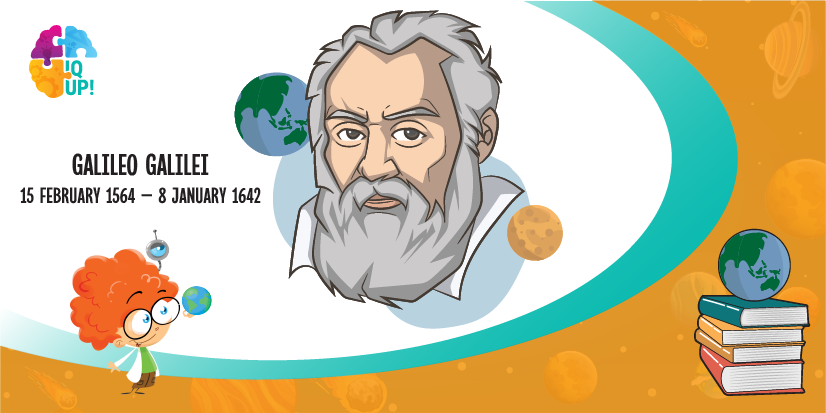On February 15th, we celebrate the birthday of one of the most famous scientists in history, Galileo Galilei. Born in 1564 in Pisa, Italy, Galileo is known for his contributions to astronomy, physics, and mathematics that have had a lasting impact on our understanding of the world.
Galileo’s early life was marked by a love of mathematics and a fascination with the natural world. He enrolled at the University of Pisa to study medicine, but he soon switched to mathematics and physics. After completing his studies, Galileo began working as a teacher and later as a professor of mathematics at the University of Pisa and the University of Padua.
It was during this time that Galileo began to make groundbreaking discoveries in the field of astronomy. He built his own telescope and used it to observe the night sky, discovering that the Moon had mountains and craters, that Jupiter had four moons orbiting it, and that Venus went through phases like the Moon. These discoveries challenged the prevailing beliefs of the time, which held that the Earth was at the center of the universe and that all other celestial bodies orbited around it.
Despite all the challenges, Galileo continued to work on his scientific theories and made many other important discoveries, including the laws of motion and the principle of inertia. He also made important contributions to the field of optics, studying the properties of light and developing the first microscope.
Galileo’s life and achievements have taught us valuable skills that we have already incorporated into our IQ UP! education. Our students are encouraged to exhibit curiosity and observation skills, engage in critical thinking, and persevere through challenges. By instilling these traits, we are cultivating curious and observant students who think critically and can persevere through difficulties, equipping them with the skills and knowledge necessary for success in their STEM education.
Here are some of the lessons we can learn from Galileo:
- The importance of curiosity: Galileo’s curiosity about the natural world led him to make many groundbreaking discoveries. Encouraging children to be curious and ask questions is a great way to foster a love of learning.
- The importance of observation: Galileo’s discoveries were made possible by his ability to observe the world around him. Teaching children to be observant and to pay attention to details is a valuable skill that can help them in many areas of life.
- The importance of critical thinking: Galileo’s willingness to challenge the accepted wisdom of his time and to think critically about the world around him led to many important discoveries. Teaching children to think critically and to question the information they receive is a valuable skill that can help them make informed decisions throughout their lives.
- The importance of perseverance: Galileo faced many challenges throughout his life, but he never gave up on his work. Teaching children to persevere in the face of challenges and to never give up on their dreams is an important lesson that can help them achieve their goals.
In conclusion, on this day we celebrate the life and achievements of Galileo Galilei, a true scientific genius whose legacy continues to shape our understanding of the world. His life provides us with many valuable lessons that we can teach to children to help them become curious, observant, critical thinkers who persevere in the face of challenges.


